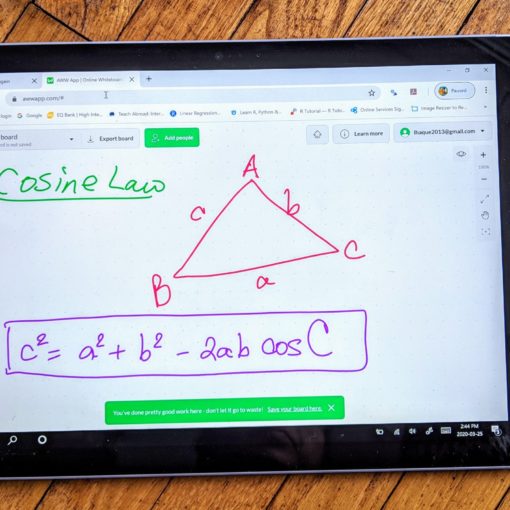Teaching is indeed a skill that not all possess. But learning is a skill too that many don’t possess either nor do many work on developing.
When you’re not doing well in a subject or course it is easy to blame the teacher, blame the school system, to blame the textbook, to blame everyone and everything. In the end, assigning blame is not going to get the results you want in the course. Teaching is a skill but sometimes there is no time to find the right person to teach you for your particular needs. Sometimes it is worth taking a moment to look at ourselves and how we are learning and how we can improve upon how we are learning to make the learning process more efficient and effective.
Learning is a skill that we learn and cultivate over time. Too many people decide that a particular subject is not for them or that “this is the way they are” and just accept the results they get and move on. This is perfectly acceptable. Unfortunately, in some cases when you are in a school and educational system, this perspective can lead to poor results on tests and final exams and eventually poor grades or failure in courses. All of which can be avoided.
There are so many components to learning.
Some parameters to learning
- Your environment.
- The resources you’re given.
- Note taking habits.
- Listening habits.
- Whether or not you ask questions.
- Who and when you ask questions.
- Your level of curiosity in the subject.
- Who or if you study with anyone.
- How much time you spend reviewing the material taught in class.
- Whether or not you read ahead or just read the material after it has been taught.
The list goes on.
There usually comes a point where how we have been studying has to be modified to obtain the same results we were getting. In many cases this is when people start to make excuses or assign blame for why the material isn’t coming as easily to them as before. Or decide, that subject is no longer for them.
Things to consider when math or any subject becomes harder:
- How is the way the course is taught different from other math courses I have taken?
- How does this teacher (professor) differ from others I have had in the past?
- Am I taking notes? Are my notes detailed enough?
- Am I doing the homework?
- Am I reviewing the notes after class and before the next lesson?
- Am I reading the section in the textbook that was covered in class?
- Have I gone to the teacher (professor or TA) to ask any questions about what I’m not understanding?
- Have I gone to a friend, classmates, peers that are taking the same course and tried working with them?
- I’ve done everything above but I’m still not understanding the material, have I told someone I’m having difficulty? For example, teachers, guidance counselor, parents (professor, TA, department office, students association at university)
Sometimes how we have been learning in the past does not work for some subjects or with some teachers. It does not mean the subject is necessarily any harder but perhaps how we approach learning the subject needs to modified. Spending a little more time on the course with some individual coaching or tutoring can be helpful. But also training the skill of learning will also help. Asking ourselves some of the questions above, can help put things into perspective.




